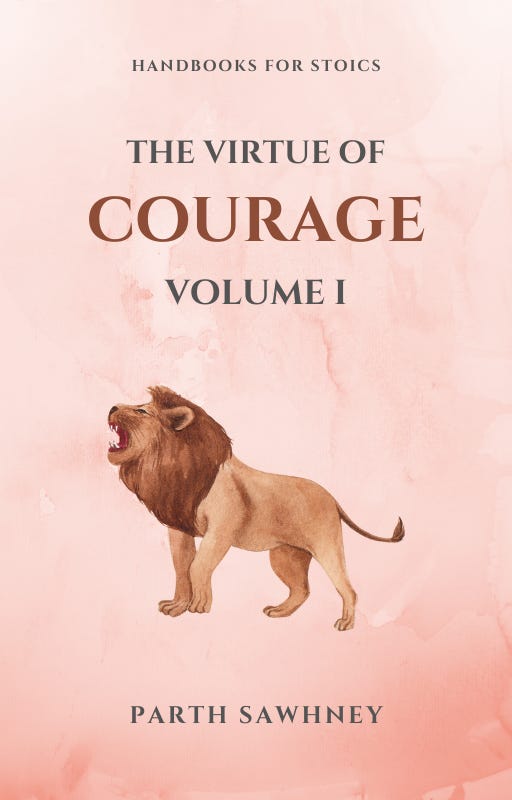how the ancient stoics embodied courage

The ancient Stoic philosophers believed that living a virtuous life according to reason and nature was the path to true happiness and fulfillment. Of the four cardinal virtues – wisdom, justice, temperance, and courage – they saw courage as particularly important and inspirational.
To the Stoics, courage meant having an unwavering strength of mind that allowed one to remain steadfast and resilient in the face of adversity, fear, or misfortune. It meant doing the right thing and standing up for one's principles even when it was extremely difficult or came at great personal cost. Courage enabled one to endure hardships and challenges with fortitude.
Several famous Stoics from ancient Greece and Rome exemplified the virtue of courage through their words and deeds. The freed slave Epictetus endured exile, poverty, and physical disability with a resilient spirit. The statesman and playwright Seneca showed courage in defying the tyrannical emperor Nero, ultimately being ordered to kill himself. The emperor Marcus Aurelius led the Roman armies with courage and equanimity.
The founder of Stoicism, Zeno of Citium, embodied courage as he overcame immense hardships. A wealthy merchant, he lost everything in a shipwreck. Undeterred by fate's blows, he found solace in philosophy and began teaching the concepts that would become Stoicism. His courage manifested not in mighty battles, but in the steadfastness with which he embraced a new life path, transforming personal misfortune into a philosophy that shaped Western thought for centuries.
Perhaps the most legendary display of Stoic courage was by Cato the Younger in his final stand against the dictatorial powers of Julius Caesar during the Roman Civil War. Although certain of defeat, Cato fought on and chose to take his own life rather than accept Caesar's rule, become enslaved, or compromise his principles. His courageous resistance was seen as inspirational by Stoics.
To the ancient Stoics, courage flowed from a cosmic perspective on life's trials as natural events beyond one's control. By calmly accepting and enduring what cannot be changed with inner fortitude, the virtuous person's unshakable resilience would shine as a supreme example of courage. This unwavering strength of character was a vital part of their philosophical ideal.
I’m so happy and grateful to announce the release of my new eBook “The Virtue of Courage: Volume I”.
In this second installment of the "Handbooks for Stoics" series, I provide a profound exploration of the virtue of courage from the ancient Stoic philosophers. With wisdom and insights derived from the teachings of Seneca, Epictetus, Marcus Aurelius, and others, “The Virtue of Courage” illuminates timeless principles for overcoming fear, remaining resilient through hardship, and bravely confronting life's inevitable challenges.

Drawing on classical texts and modern case studies, I illustrate what it truly means to lead a "courage-fueled life" in the 21st century. Readers will gain a new perspective on fear, anxiety, pain, failure, loss, and crisis – viewing them not as obstacles but as opportunities to strengthen their resolute character.
Whether facing daunting circumstances or daily micro-challenges, this indispensable handbook reveals the path to confronting problems with steady calm, clear judgment, and determined self-control.
For those seeking to honestly grapple with life's unavoidable adversities while embodying the wisdom of the ancient Stoics, “The Virtue of Courage” provides an inspiring and eminently practical guide. Reclaim your agency, embrace the philosophy of taking the high road no matter what, and become the courageous person you are meant to be.
Get your copy today! Learn more here.


